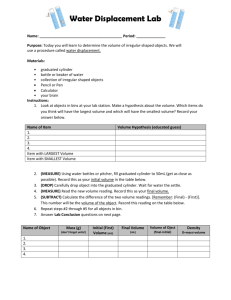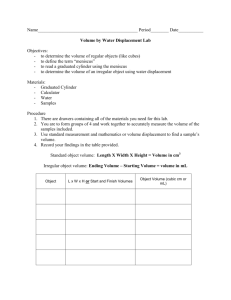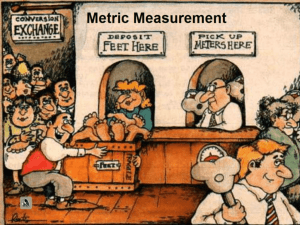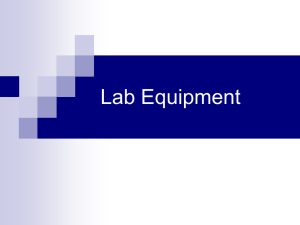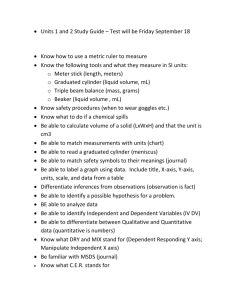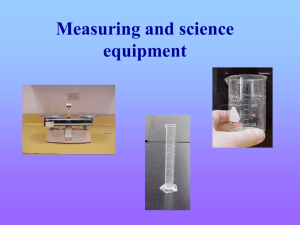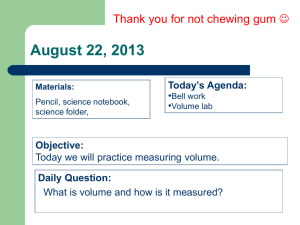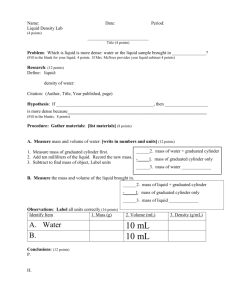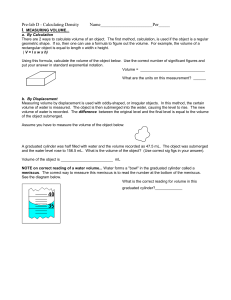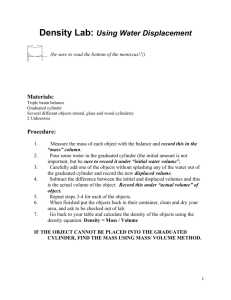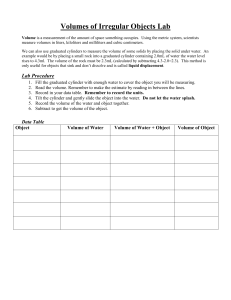Water Displacement Lab: Volume Measurement Activity
advertisement
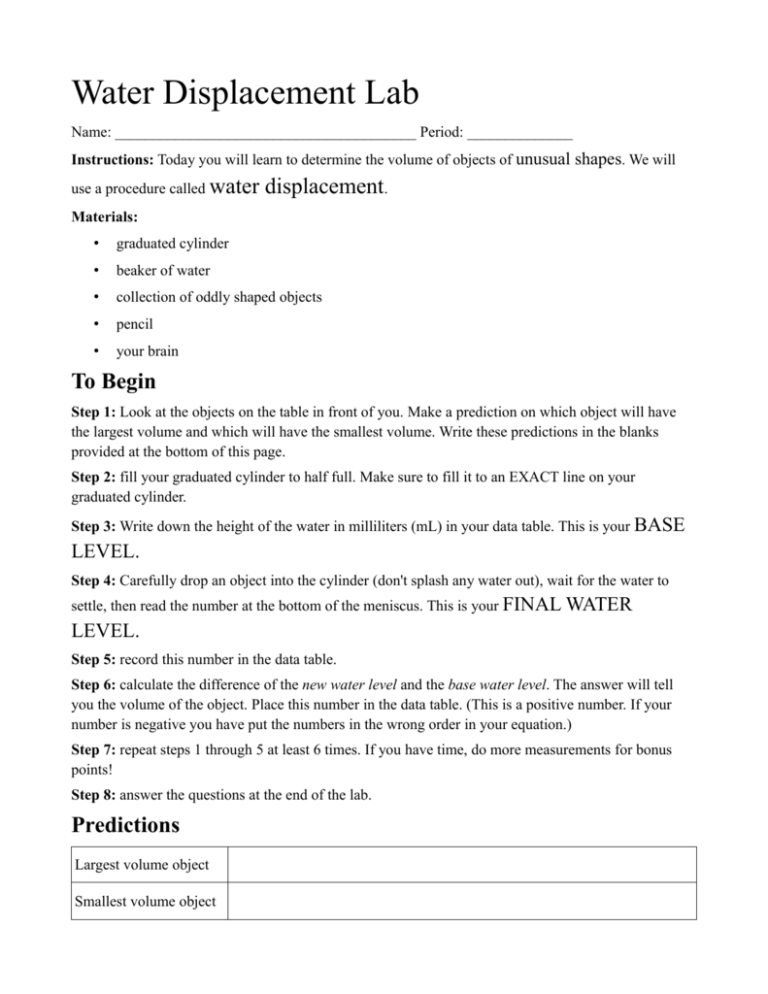
Water Displacement Lab Name: ________________________________________ Period: ______________ Instructions: Today you will learn to determine the volume of objects of unusual shapes. We will use a procedure called water displacement. Materials: • graduated cylinder • beaker of water • collection of oddly shaped objects • pencil • your brain To Begin Step 1: Look at the objects on the table in front of you. Make a prediction on which object will have the largest volume and which will have the smallest volume. Write these predictions in the blanks provided at the bottom of this page. Step 2: fill your graduated cylinder to half full. Make sure to fill it to an EXACT line on your graduated cylinder. Step 3: Write down the height of the water in milliliters (mL) in your data table. This is your BASE LEVEL. Step 4: Carefully drop an object into the cylinder (don't splash any water out), wait for the water to settle, then read the number at the bottom of the meniscus. This is your FINAL WATER LEVEL. Step 5: record this number in the data table. Step 6: calculate the difference of the new water level and the base water level. The answer will tell you the volume of the object. Place this number in the data table. (This is a positive number. If your number is negative you have put the numbers in the wrong order in your equation.) Step 7: repeat steps 1 through 5 at least 6 times. If you have time, do more measurements for bonus points! Step 8: answer the questions at the end of the lab. Predictions Largest volume object Smallest volume object Data Table Name of Object base level of water (don't forget units) 1. 2. 3. 4. 5. 6. 1. Which object had the largest volume? 2. Which object had the smallest volume? 3. Was your prediction right? final level show your work (don't (don't forget units) forget units) final level – base level water displaced / volume of object (don't forget units)
